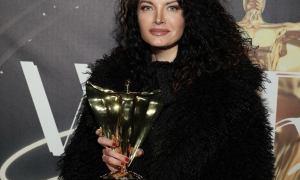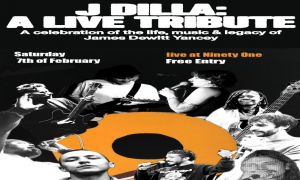WHEN Charles Grimsdale, a British investor, started the Internet music venture OD2 in 1999, he had a hard time persuading large record companies to license their music. But when he approached the rock musician Peter Gabriel about putting his music catalog online, he got a very different response: Mr. Gabriel was not only willing, he also wanted to take a stake in the company.
While major record companies have spent heavily on the Internet with relatively little to show, Mr. Gabriel and his partners started OD2 on a tight budget, built it into a digital delivery platform that retailers like Virgin used on their Web sites, and sold it in 2004 for $40.5 million.
“When most labels were banging their heads, he got it and saw the liberating value of Internet distribution to artists, and that's what excited him," says Mr. Grimsdale, a partner at Eden Ventures, of Mr. Gabriel. “He has a very good sense technologically of what's going to work."
OD2's success also catapulted Mr. Gabriel, after decades as a top-selling artist, into a second career as a powerful player in the emerging online music industry, a move that once seemed more outlandish than the costumes he wore in the early 1970s as a singer for the rock group Genesis.
But Mr. Gabriel, the son of an inventor, keeps devising new ways for musicians and record labels to use the Web to control their work and to make -- not lose -- money.
His two newest Internet ventures -- We7, an advertising-driven music site, and TheFilter.com, which offers personally tailored multimedia recommendations -- have received strong financial backing and positive user reviews in early tests.
As an artist, Mr. Gabriel was quick to embrace new technologies like music videos, interactive CDs and high-definition television. His 1982 release featuring the popular single “Shock the Monkey" was among the first completely digital recordings.
“He's very technically savvy," says Tom Teichman, chairman of Spark Ventures, which is a partner with Mr. Gabriel on We7. “He carries all the latest gadgets, understands what the artistic involvement can be and is very clued up on the business model. That's an extremely unusual combination, and he does it in a chummy way."
While major record companies have spent heavily on the Internet with relatively little to show, Mr. Gabriel and his partners started OD2 on a tight budget, built it into a digital delivery platform that retailers like Virgin used on their Web sites, and sold it in 2004 for $40.5 million.
“When most labels were banging their heads, he got it and saw the liberating value of Internet distribution to artists, and that's what excited him," says Mr. Grimsdale, a partner at Eden Ventures, of Mr. Gabriel. “He has a very good sense technologically of what's going to work."
OD2's success also catapulted Mr. Gabriel, after decades as a top-selling artist, into a second career as a powerful player in the emerging online music industry, a move that once seemed more outlandish than the costumes he wore in the early 1970s as a singer for the rock group Genesis.
But Mr. Gabriel, the son of an inventor, keeps devising new ways for musicians and record labels to use the Web to control their work and to make -- not lose -- money.
His two newest Internet ventures -- We7, an advertising-driven music site, and TheFilter.com, which offers personally tailored multimedia recommendations -- have received strong financial backing and positive user reviews in early tests.
As an artist, Mr. Gabriel was quick to embrace new technologies like music videos, interactive CDs and high-definition television. His 1982 release featuring the popular single “Shock the Monkey" was among the first completely digital recordings.
“He's very technically savvy," says Tom Teichman, chairman of Spark Ventures, which is a partner with Mr. Gabriel on We7. “He carries all the latest gadgets, understands what the artistic involvement can be and is very clued up on the business model. That's an extremely unusual combination, and he does it in a chummy way."


























